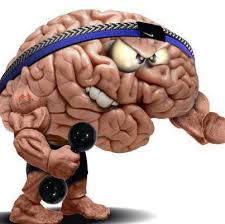Global poverty could rise to over one billion people due to the COVID-19 pandemic and more than half of the 395 million additional extreme poor would be located in South Asia, which would be the hardest-hit region in the world, according to a new report.
Researchers from King's College London and Australian National University published the new paper with the United Nations University World Institute for Development Economics Research (UNU-WIDER) said that poverty is likely to increase dramatically in middle-income developing countries and there could be a significant change in the distribution of global poverty.
The location of global poverty could shift back towards developing countries in South Asia and East Asia, the report said.
The paper, 'Precarity and the Pandemic: COVID-19 and Poverty Incidence, Intensity and Severity in Developing Countries,' finds that extreme poverty could rise to over one billion people globally as a result of the crisis.
The cost of the crisis in lost income could reach USD 500 million per day for the world's poorest people, and the intensity and severity of poverty are likely to be exacerbated dramatically.
The report said that based on the USD 1.90 a day poverty line and a 20 per cent contraction, more than half of the 395 million additional extreme poor would be located in South Asia, which would become the hardest hit region in the world mainly driven by the weight of populous India followed by sub-Saharan Africa which would comprise 30 per cent, or 119 million, of the additional poor.
The report added that as the value of the poverty line increases, a larger share of the additional poor will be concentrated in regions where the corresponding poverty line is more relevant given the average income level.
For instance, the regional distribution of the world's poor changes drastically when looking at the USD 5.50 a day poverty line the median poverty line among upper-middle-income countries.
At this level, almost 41 per cent of the additional half a billion poor under a 20 per cent contraction scenario would live in East Asia and the Pacific, chiefly China; a fourth would still reside in South Asia; and a combined 18 per cent would live in the Middle East and North Africa (MENA) and in Latin America and the Caribbean (LAC), whose individual shares are close to that recorded for sub-Saharan Africa.
India plays a significant role in driving the potential increases in global extreme poverty documented previously, comprising almost half the estimated additional poor regardless of the contraction scenario, the report said.
Nonetheless, there are other populous, low and lower-middle- income countries in South Asia, sub-Saharan Africa, and East Asia and the Pacific accounting for a sizeable share of the estimates: Nigeria, Ethiopia, Bangladesh, and Indonesia come next, in that order, concentrating a total of 18 19 per cent of the new poor, whereas the Democratic Republic of Congo, Tanzania, Pakistan, Kenya, Uganda, and the Philippines could jointly add 11 12 per cent.
Taken together, these figures imply that three quarters of the additional extreme poor globally could be living in just ten populous countries.
The report added that this high concentration of the additional extreme poor is staggering , although not necessarily unexpected given the size of each country's population.
On one hand, data shows that three of these ten countries (Ethiopia, India, and Nigeria) were among the top ten by number of extreme poor people in 1990 and remained within the ranks of that group until 2018.
Despite this crude fact, two of these countries have managed to achieve a sustained reduction in their incidence of poverty since the early 1990s, namely Ethiopia and India, reaching their lowest poverty headcount ratio ever recorded at about 22 and 13 per cent, respectively. Nonetheless, the potential contraction in per capita income/consumption imposed by the pandemic's economic effects could erase some of this progress.
The researchers are now calling for urgent global leadership from the G7, G20, and the multilateral system, and propose a three-point plan to address the impact of the COVID-19 on global poverty quickly.
Professor of International Development at King's College London and a Senior Non-Resident Research Fellow at UNU-WIDER Andy Sumner said the COVID-19 crisis could take extreme poverty back over one billion people because millions of people live just above poverty.
Millions of people live in a precarious position one shock away from poverty. And the current crisis could be that shock that pushes them into poverty.
Professor Kunal Sen, Director of UNU-WIDER said the new estimates about the level of poverty in the world and the cost of the COVID-19 pandemic to the world's poor are sobering.
We cannot stand by and see the hard work and effort of so many be eradicated. We will know what the real impact is in time, but the necessary action to ensure we achieve the Sustainable Development Goals by 2030 needs to be planned now, Sen said.






Comments
Add new comment